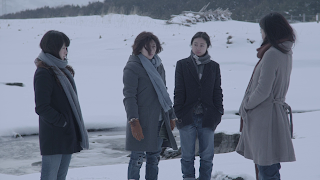The first series is great, and is a must to anyone who enjoys murder mysteries with a spooky twist. It also has the advantage of an interesting story arc: what caused the mysterious death of Yamada’s father many years ago.
It is a quality piece of TV, and one of the best things I can say about it is that it stills sticks in my mind. Which I can’t honestly say about its many sequels. There are so many TV specials and movies that’s it’s hard to be sure which ones were which. I’m not even sure I’ve seen them all – they all start to blur into each other after a while.
The resolution improves, but the joke remains the same:
This how each series/special introduces the failed magician Yamada.
The most recent and final part of the drama concerns a cursed treasure and a family who are slowly killed off one by one. The story is fine, the comedy is surreal, and all the recurring characters make an appearance. On the plus side, its style is still quite unique. No other TV drama at the moment would dare to cut away from the action to a close-up of a slug, or have one of the main suspects constantly over-act.
On the down side, there wasn’t much new to the world of Trick. It felt like watching a bunch of ageing rockers trot out on stage one more time, jacket sleeves rolled up, to go through the old hits one more time. If you watch this final episode of Trick, you’ll get exactly what you expect. Whether that’s good or bad depends on what you expect.






















